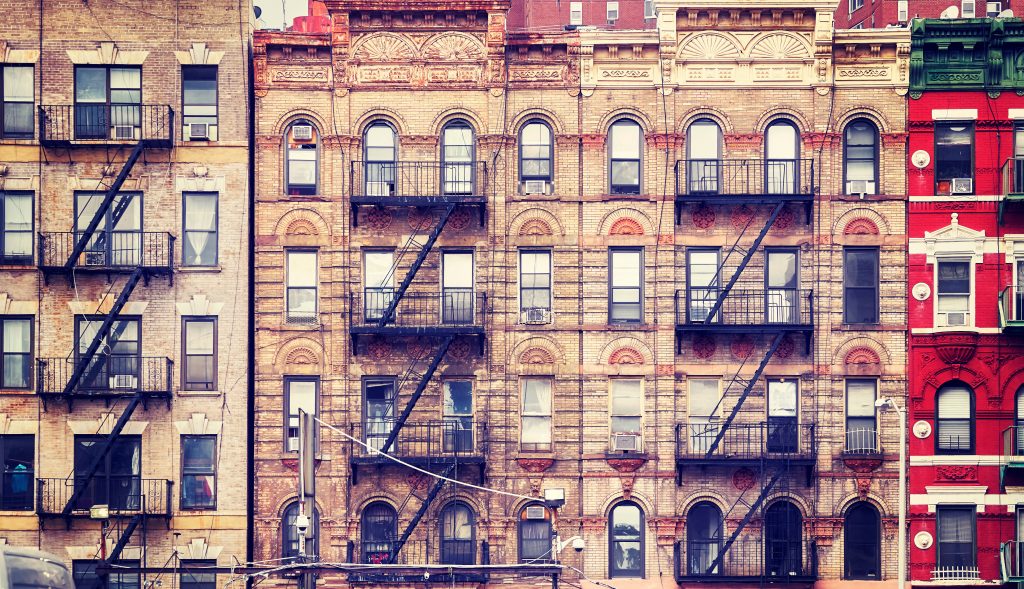Safeguarding Structures and Lives: The Benefits of New York City Local Law 11 Inspections

Written by Tim Webb & Scott Zimmerman
New York City’s Local Law 11, officially known as the Facade Inspection and Safety Program (FISP), requires periodic inspections of building facades to ensure their structural integrity and the safety of the public. Beyond regulatory compliance, these inspections offer a myriad of benefits that contribute to the longevity, safety, and reputation of buildings and their occupants.
Early Detection of Structural Issues: Local Law 11 inspections serve as proactive measures to identify and address potential structural issues in building facades at an early stage. Regular examinations enable experts to detect signs of deterioration, corrosion, or damage, allowing for timely interventions. Early detection is key to preventing minor issues from escalating into major structural problems that could compromise the safety of the building.
Enhanced Public Safety: One of the primary benefits of Local Law 11 inspections is the promotion of public safety. By identifying and rectifying potential hazards such as loose bricks, deteriorating masonry, or other facade issues, these inspections mitigate the risk of falling debris. This not only protects pedestrians and passersby but also enhances the overall safety of the community.
Legal Compliance and Avoidance of Penalties: Conducting FISP Local Law 11 inspections ensures compliance with city regulations, thereby helping property owners avoid legal issues and penalties. Non-compliance can result in fines, violations, and legal action by regulatory authorities. By adhering to the inspection requirements, property owners demonstrate their commitment to maintaining safe and compliant structures.
Protection of Occupants and Residents: Regular facade inspections prioritize the safety of building occupants and residents. Identifying and addressing potential hazards, such as crumbling facades or loose materials, helps create a secure living environment. Occupants can have peace of mind knowing that their building is routinely assessed and maintained to uphold safety standards.
Preservation of Property Values: Local Law 11 inspections contribute to the preservation of property values. Buildings with well-maintained facades and a history of compliance with safety regulations are perceived as secure and responsibly managed. This positive reputation can attract potential buyers or tenants and enhance the overall value of the property within the real estate market.
Preventive Maintenance and Cost Savings: Routine inspections under FISP Local Law 11 facilitate preventive maintenance. Addressing minor issues early on can prevent the need for extensive repairs or emergency interventions in the future. This not only saves costs in the long run but also minimizes disruptions to building occupants and avoids the financial burden of emergency repairs.
Mitigation of Reputation Risks: Building a positive reputation is crucial for property owners and managers. Regular Local Law 11 inspections help mitigate reputation risks associated with safety concerns and regulatory non-compliance. A building with a history of adherence to safety standards is more likely to be perceived positively within the community and the real estate market.
Long-Term Structural Integrity: Local Law 11 inspections contribute to the long-term structural integrity of buildings. By identifying and rectifying issues promptly, these inspections extend the lifespan of facades and other structural elements. This proactive approach ensures that buildings remain resilient, even in the face of environmental factors and the passage of time.
Community Confidence and Trust: Property owners who prioritize FISP inspections instill confidence and trust within the community. Residents feel secure knowing that their building is regularly assessed for safety, and potential buyers or tenants are more likely to choose a property with a strong commitment to maintaining high standards of safety and compliance.
The benefits of having a New York City Local Law 11 inspection performed extend far beyond regulatory compliance. These inspections are integral to ensuring public safety, preserving property values, and fostering a positive reputation within the community. By investing in preventive measures and addressing potential issues early on, property owners contribute to the long-term well-being and resilience of their structures, creating safe and secure environments for occupants and enhancing the overall quality of urban living.
If your building needs to file a FISP report for Cycle 9, please contact O&S today: (646) 736-0699.
Check out some of our Envelope Projects here:
https://www.oandsassociates.com/project-category/exterior-envelope/